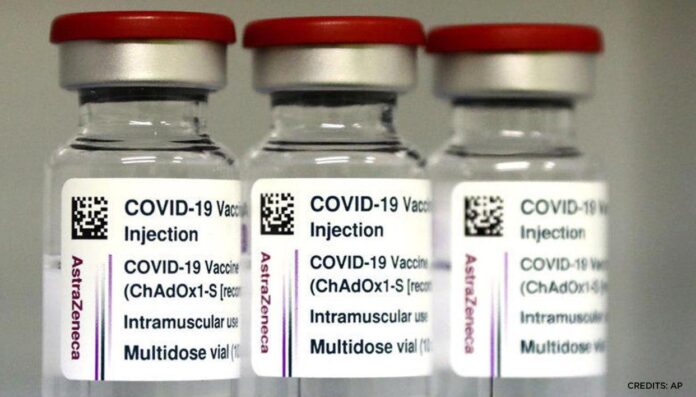Brussels is suing the pharmaceutical giant over COVID-19 vaccine supply issues after delivery delays and cuts.
![The EU's legal action comes after months of rows with AstraZeneca over supply issues and amid concerns over the efficacy and safety of the Anglo-Swedish company's vaccine [File: Dado Ruvic/Reuters]](https://www.aljazeera.com/wp-content/uploads/2021/04/2021-04-22T103430Z_871741795_RC2Y0N9JMT99_RTRMADP_3_HEALTH-CORONAVIRUS-EU-VACCINE.jpg?resize=770%2C513)
The European Commission’s lawsuit against AstraZeneca over the pharmaceutical giant’s supply of COVID-19 vaccines began at a Brussels court on Wednesday, with the bloc’s lawyers pressing for immediate deliveries of doses from all of the company’s factories, including those within the United Kingdom.
The legal case is the latest twist in an ongoing saga between the European Union and the Anglo-Swedish company, which has seen the pair at loggerheads over the latter’s alleged shortfall of deliveries to the bloc.
It comes as several European countries grapple with a third wave of COVID-19 infections.
AstraZeneca’s vaccine was envisaged as a central part of Europe’s vaccination campaign, and a linchpin in the global strategy to get coronavirus vaccines to poorer countries because it is cheaper and easier to use than shots produced by Pfizer-BioNTech and Moderna.
But cuts and delays in delivery of doses to the EU have weighed on faltering mass immunisation efforts within the bloc, which trails behind former member state the UK, the United States and Israel, among other countries, on vaccination.
Brussels has argued the disruption and supply issues amount to a failure by AstraZeneca to respect its contract with the EU. It has also accused the company of not having a “reliable” plan to ensure timely deliveries.
AstraZeneca, for its part, has said the legal action by the EU is without merit and has pledged to defend itself strongly in court.
EU seeks immediate deliveries
Putting forward the EU’s case in the Brussels court, lawyers for the bloc told the public hearing that the bloc was seeking immediate deliveries of vaccine doses from all factories listed in its contract, including those in the UK.
The move risks reigniting a spat with London over scarce vaccine supplies.
“We demand deliveries by the end of June and we also demand with immediate effect the use of all plants listed in the contract,” EU lawyer Rafael Jafferali told the hearing.
“The contract listed a series of plants that had to be used by AstraZeneca and that still today, in breach of the contract, AstraZeneca is not using,” Jafferali added.
In response, AstraZeneca lawyer Hakim Boularbah told the hearing there was no obligation to deliver vaccines from all production plants.
The contract lists four vaccine-making plants, two of which are situated in the UK. Whereas AstraZeneca has delivered doses to the EU from sites in Belgium and the Netherlands, it has not shipped to EU countries any dose produced in the two UK plants, run by Oxford Biomedica and Cobra Biologics.
The contract also says that a Catalent factory in the United States which manufactures AstraZeneca jabs “may serve as a back-up supply site”.
“AstraZeneca deeply regrets the decision of the European Commission to start this legal action in relation with the COVID-19 supply agreement. We hope to resolve this dispute as soon as possible,” Boularbah told reporters after the hearing.
EU officials have told Reuters news agency that AstraZeneca justifies the lack of supplies from the UK by citing clauses in its UK contracts that prevent exports of the vaccine it developed with Oxford University.
- AstraZeneca vaccine is 79% effective against symptomatic Covid-19, company says
- Myanmar protesters join silent strike after soldiers kill 7-year-old girl in her father’s arms
The UK government has denied export curbs and is seeking extra doses from a factory in the Netherlands run by AstraZeneca’s sub-contractor Halix. The EU is now blocking exports from that plant.
The US government has meanwhile told Brussels it will not export doses to Europe until its vaccine rollout is completed.
In court, the first session ended in just over an hour and the parties agreed to hold two hearings on May 26.
The EU lawyers asked for a decision on the case, which is being conducted under an emergency procedure, before the end of June to make sure missing doses could be delivered in a timely fashion.
Supply dispute
The contract between AstraZeneca and the EU was signed by the European Commission on behalf of the bloc’s 27-member states last August.
Under its terms, the company had committed to making its “best reasonable efforts” to deliver 180 million vaccine doses to the EU in the second quarter of this year, for a total of 300 million in the period from December to June.
But AstraZeneca said in a statement on March 12 it would aim to deliver only one-third of that amount by the end of June – including about 70 million in the second quarter.
A week later, the European Commission sent a legal letter to the company, the first step of a formal procedure to resolve disputes.
AstraZeneca’s French-Australian boss Pascal Soriot has previously argued his company’s agreement with the EU only bound his company to make its “best efforts” to deliver the supply volumes referenced in the contract.
But the European Commission has said the rest of the contract shows greater legal responsibility than that.
The EU now relies mostly on the Pfizer-BioNTech jab for its immunisation campaign.





